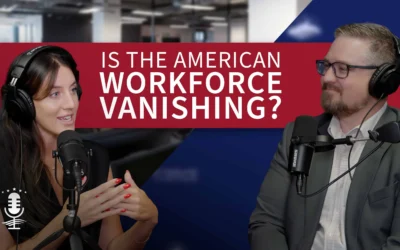Written by
- A group of Utah citizens is asking the Utah Supreme Court to change state election law to remove requirements for ballot initiatives.
- The lawsuit against the Lieutenant Governor is without merit, but it raises important questions about what type of government Utah wants.
- Although the initiative power can be valuable, it should not displace representative government.

A petition recently accepted by the Utah Supreme Court highlights the strengths of our constitutional system of self-government as well as the limitations of competing theories of government.
The petition was filed directly with the Supreme Court rather than with a trial court because the parties behind it want a quick resolution. Their claim is that they have a right to begin collecting signatures to enact a series of major changes to Utah law so that voters can weigh in during the 2026 election.
In March 2025, a group of Utah voters submitted a series of proposals to the Lieutenant Governor for changes in Utah law. These included changes to the state’s open record law, the repeal of the state tax code, a complete replacement of the initiative and referendum process, and the repeal of zoning laws.
The background for these submissions is a feature of the Utah Constitution that allows for laws to be proposed in two ways. The first is through representatives of the people of the state serving in the legislature, and the second is by citizens who can follow a legal procedure to propose laws that are then approved or rejected by voters in an election. It is important to note that both of these routes facilitate the state constitutional principle that “All political power is inherent in the people.”
The Lieutenant Governor rejected the initiatives because they did not comply with Utah law. That is what led the proponents to bring their case to the state supreme court. They argue that the Lieutenant Governor’s role is limited to sending a proposed initiative to another executive agency for a determination of its likely economic impact, and therefore should allow the proponents to hold public hearings and start the process of gathering signatures.
The problem with this argument is that it only points to one section of Utah’s election law. The proponents do not mention in their petition another critical section which provides, “The lieutenant governor shall reject an initiative application . . . and not issue signature sheets if: (a) the proposed law: (i) is unconstitutional; (ii) is nonsensical; (iii) could not become law if passed; (iv) contains more than one subject.”
Following the latter statute, the Lieutenant Governor determined that the initiative proposals violated these provisions. This conclusion certainly seems consistent with the facts. The proposed initiatives contain general ideas, generous use of all caps, and then brief statements of policy, but no specific legal language. For instance, one of the proposals would repeal the state tax code and replace it with the following as “the only allowed funding for all state and local agencies”:
- 5% import tariff on all products imported into the state.
- 5% export tariff on all exports in the state except , [sic] if the export is defined as natural Al [sic] resources, water, alfalfa, minerals, animals of husband are to a foreign nation the export tax shall be 10,000%.
It continues, “We herby [sic] declare and remove from the legislature any authority to modify any tax code until the citizens legislative session has been concluded and voted upon.”
This case provides an important, but not particularly challenging, opportunity for the Utah Supreme Court to protect constitutional and legal principles against efforts to dilute the power of the legislature.
The initiative process is a relatively new development, originating in the Western states. All states have adopted a republican form of government referenced in the U.S. Constitution. Republicanism, in this sense, means lawmaking mediated by legislative bodies made up of elected representatives. Some states have supplemented legislative power with a parallel route to lawmaking by citizen initiative. As in Utah, this typically requires following statutory rules on how specific proposals are considered and approved, including appropriate limitations, like single-subject rules or requirements of adequate public support.
This approach has obvious advantages. When corruption or partisan wrangling prevents needed change, citizens can directly propose new laws that can be approved by voters. It also comes with risks. A republican form of government has significant advantages. As James Madison explained in Federalist 10, representative government has a “tendency to break and control the violence of faction” defined as “some common impulse of passion, or of interest, adversed to the rights of other citizens, or to the permanent and aggregate interests of the community.”
These advantages can be lost when direct lawmaking allows for constant churning in the law. It is susceptible to temporary bursts of popular enthusiasm on issues that would have benefited from a more deliberative consideration. It favors well-financed interests that can afford the publicity needed to promote their pet causes with voters. These drawbacks are exemplified in California’s initiative system.
An initiative procedure can be an essential escape valve when necessary, but it is not a good substitute for the deliberative process of lawmaking by representatives. The feedback of elections ensures accountability, while the need to build consensus among different interests in the legislative process explains the Framers of the U.S. Constitution’s preference for republicanism. When initiative lawmaking is necessary, legal procedures like Utah’s can promote at least some deliberation.
The Utah Constitution’s approach of preserving the legislature’s lawmaking power also allows the people’s representatives to make necessary changes when an initiative has unforeseen consequences or no longer reflects the needs of citizens.
In the news coverage of the initiative lawsuit, one of the proponents threatens: “We are aiming at a U.S. Supreme Court ruling that the people’s legislative power right to reform, alter or abolish the government is unfettered and unrestricted. It is my intent to force reform. If they resist, they will be abolished.” This is precisely what our constitution is intended to prevent. Displacing representative government with interest-driven lawmaking unanchored by necessary legal procedures may be tempting when the normal legislative process can take time and frustrate some strongly-held opinions.
At the end of the 1787 U.S. Constitutional Convention, Benjamin Franklin famously noted that he and his fellow delegates had given to the people of the United States, “a republic, if [they] can keep it.” It would be a shame for the people to give it away.

Insights: analysis, research, and informed commentary from Sutherland experts. For elected officials and public policy professionals.

- A group of Utah citizens is asking the Utah Supreme Court to change state election law to remove requirements for ballot initiatives.
- The lawsuit against the Lieutenant Governor is without merit, but it raises important questions about what type of government Utah wants.
- Although the initiative power can be valuable, it should not displace representative government.
Read More
Are states moving toward constitutional protections for parents’ rights?
As states move to enshrine parental rights in education, what’s been done, what’s proposed, and where does Utah stands in the movement?
Should we reorient higher ed toward a skills-based economy?
How can we build a system that values all postsecondary pathways — whether academic or technical?
“Wealth Porn” is destroying trust, community, and civility
A growing wave of social media-fueled “wealth porn” is deepening youth disillusionment, eroding trust in American institutions, and driving a cultural shift toward radical reform and civic renewal.
Connect with Sutherland Institute
Join Our Donor Network
Follow Us
The post Can Utah keep its republic? A new lawsuit raises this question appeared first on Sutherland Institute.














